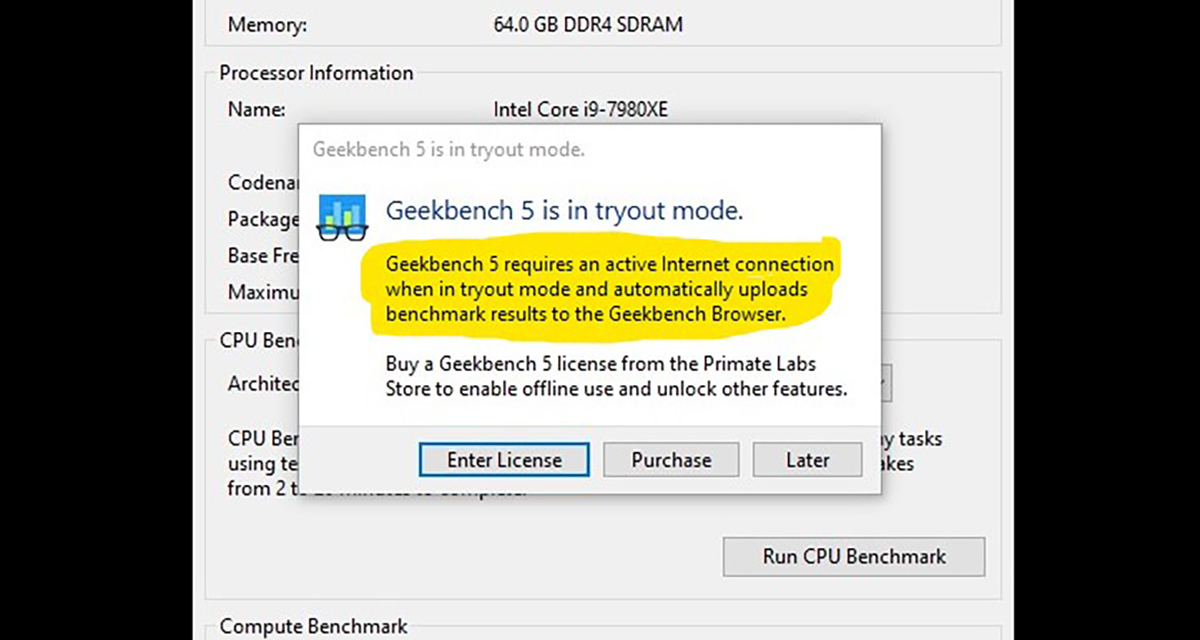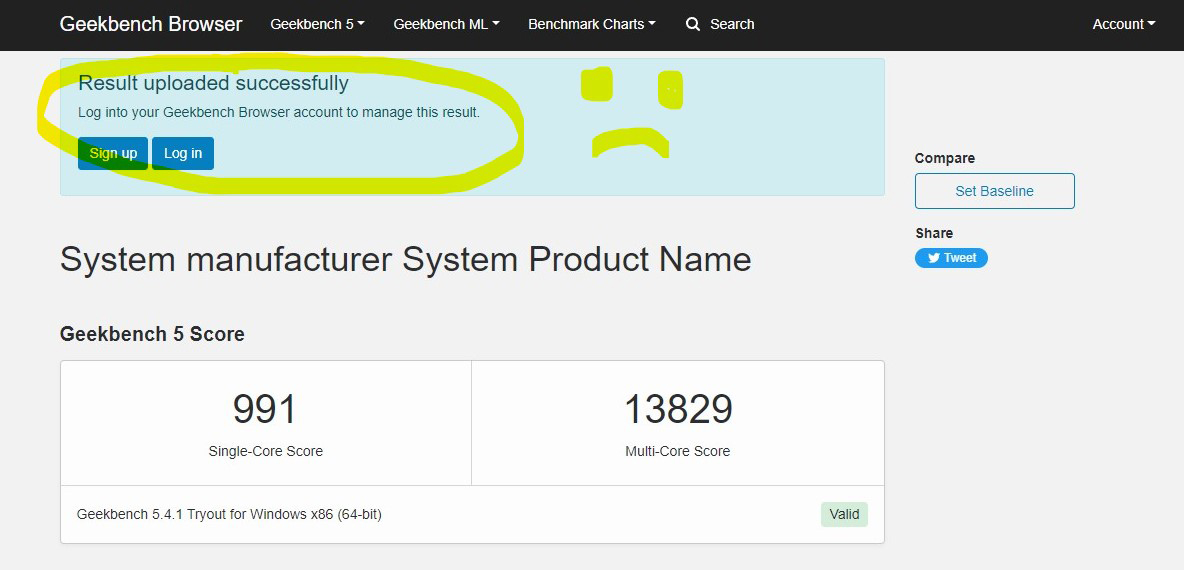
[ad_1]
Reports of leaked CPUs no longer appearing in the popular Geekbench benchmark are greatly exaggerated.
On Wednesday, an aptly named and saddened Twitter account called Benchleaks reported that “geekbench ded :(” The tweet showed a new error from Geekbench saying “Pre-Release Hardware Blocked. Primate Labs prevents pre-release hardware benchmark results from being displayed on the Geekbench Browser. Pre-release hardware includes engineering samples (ES), qualification samples (QS) and retail hardware not yet available for sale.”
Many assumed the message meant the Geekbench party was over, and unreleased CPU performance results could no longer be leaked—but John Poole, president of Primate Labs, told PCWorld it’s actually not a new policy at all.
“We’ve had the policy where we don’t want to include those parts in our database,” Poole told PCWorld. But that policy has been in place for some time and the only thing that’s new is the error page which actually went up about three months ago when an intern had time to handle it. “The policy is old, the error message is new.”
This summer, Primate Labs started screening for different CPUID strings alongside the older 0000 being used. The rationale behind the policy, he said, is to try to screen out results that are so early, they can make the oft-cited database of less use to consumers. Poole said about five a day get rejected from the results for being early engineering samples, but that doesn’t mean they’re all new chips. Many could be older engineering sample parts purchased used.
More importantly for gearheads, the policy won’t really stop the leaks because Primate Lab’s engineering sample policy is like the Pirate’s Code—they’re more guidelines than actual rules.
Although early parts with an odd CPUID are automatically screened out, if someone ran Geekbench 5 on an unreleased chip weeks or months beforehand with a normal CPUID, it would likely go through. That means if Tim Cook had one too many and decided to run Geekbench 5 one night on an Apple M1X laptop, it would likely show up.
The news is likely to make the cottage industry of Geekbench watchers happy. Like auto paparazzis camped around GM headquarters waiting to snap photos of the 2025 Corvette being tested, people legitimately sift through Geekbench results hoping to glimpse early performance from an Apple M1X, Intel Core i9-12900K, or AMD Zen 4 chip once results are uploaded.
“You definitely have people sitting outside the Geekbench database,” Poole told PCWorld. “We have people refresh every minute (looking for new chips).”
Why do so many people leak results on Geekbench?
Of course, the larger question is just why do so many leaks seem to occur using Geekbench? Poole said he doesn’t really know, but he believes most are simply accidents.
“I’ve had panicked calls from hardware companies,” Poole said, asking to have results scrubbed. He said Primate Labs will sometimes comply and remove the entries from the database—but only if the benchmark paparazzi hasn’t noticed yet. If a screenshot of a result is already trending on Reddit and Twitter, however, Poole said the result will likely stand.
“If the horse has left the barn, what’s the point of closing of the barn door?” he said.
Poole said it’s also not exactly a secret Geekbench 5 does it either. When you install Geekbench 5 you get a warning dialog explicitly stating “Geekbench 5 requires an active Internet connection when in tryout mode and automatically uploads benchmark results to the Geekbench Browser.” You can see that in the screenshot below. It pops up every time you start the free version.

You are indeed warned when installing Geekbench 5 that the free version will automatically upload results to the Geekbench Browser database.
IDG
Poole really believes most are people caught off guard rather than doing it on purpose.
Although Poole doesn’t say it, we will: The leakers are probably cheapskates too. While the free version of Geekbench automatically uploads results, the paid versions don’t. They cost a reasonable $14.99 for a license to run the macOS, Windows, or Linux version. If you want only the one for your operating system of choice it’s $9.99. Geekbench also comes in a Pro version for commercial users which costs $99.99. So maybe if you get your mitts on a very expensive engineering sample CPU, you might want to consider coughing up that $15 lest you end up breaking that non-disclosure agreement you signed.

IDG
One of founding fathers of hardcore tech reporting, Gordon has been covering PCs and components since 1998.
[ad_2]
Source link